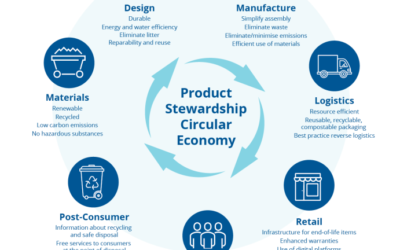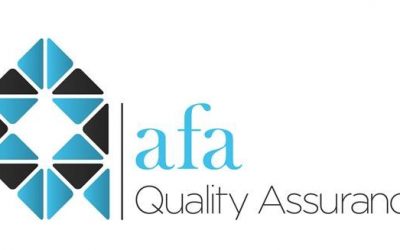ENVIRONMENTAL. SOCIAL. GOVERNANCE.
The Australasian Furniture Association places a strong emphasis on supporting and advising Members about their obligations around safety, standards, compliance and regulatory requirements.
We actively support our Members’ with the delivery of programs and services whilst promoting action across the industry to improve the professional reputation and integrity of the furnishing industry.
AFA Members receive support and advice to assist them to be streets ahead of the competition and be responsible, compliant suppliers to minimise risk to their businesses and their clients.
ESG Criteria
Each of the three elements of ESG investing – environmental, social, and governance – is comprised of a number of criteria that may be considered by clients including procurement bodies, socially responsible investors, consumers or companies wanting to work with ESG-friendly organisations.
ESG – Environmental
Environmental criteria include such things as a company’s use of renewable energy sources, its waste management program, how it handles potential problems of air or water pollution arising from its operations, deforestation issues (if applicable), and raw material sourcing.
ESG – Social
Social criteria cover an extremely wide range of potential issues. There are many separate social aspects of ESG, but all of them are essentially about social relationships. One of the key relationships for a company is the company’s relationship with its employees.
Including:
- Fair pay conditions.
- Safe working conditions.
- Career Advancement.
- Access to training.
- Flexible ‘work from home’ conditions.
- Additional benefits and incentives.
ESG – Governance
Governance in the context of ESG is essentially about how advocacy is managed by those in executive positions. How well do executive management and the advisory councils attend to the interests of the association’s various stakeholders – employees, community, suppliers and customers? Regulatory, supply chain and compliance transparency and relevant reporting are considered key elements of good governance.
Want to know more? Lodge your enquiry below or contact the AFA via our Contact Us page.
Not a Member? Visit our Become a Member and Sign Up today!
LATEST NEWS
Timber Industry in Australia: An Overview
Australia’s forestry industry is a hugely important contributor to Australia’s economy, providing jobs and generating revenue through the production and export of forest products. According to the Department of Agriculture, Fisheries and Forestry (DAFF), in 2018-2019,...
‘Land-not-so-full’ is the Future of Landfill Diversion – Product Stewardship
Product stewardship is an approach to environmental management in which everyone involved in creating, producing, selling, or using a product is accountable for reducing its environmental impact at all points in its life cycle, including end-of-life management....
Join Australian Furniture Industry Stewardship Council
The Australian Furniture Industry Stewardship Council (AFISC) is now calling for expressions of interest to join the Advisory Groups that will inform and guide the Council towards a series of strategic milestones…
35% of Australian GDP Spent Via Government Procurement
We’ve all seen the unprecedented changes that COVID has brought to the world. Many industries felt the squeeze (as did consumers) when importation during 2019-2022 saw huge delays with freight and cargo shipping time frames. This ultimately led to a massive strain on...
Have your say on shaping the Sunshine Coast’s economic future (Queensland)
The Sunshine Coast Regional Economic Development Strategy (REDS) 2013 – 2033 was developed via a partnership between Sunshine Coast Council, State Government and local business and industry partners to guide and facilitate economic development in the region. Since its...
Cots and Mattresses Listed as High-Risk Infant Safe Sleeping Products – AFA Members Edition
The Australian Furniture Association (AFA) is proud to have been a contributor to the recently released Guide for the Design of Safe Infant Sleeping environments. Products featured in the Guide include, but are not limited to, household cots, portable cots, bassinets,...
Cots and Mattresses listed as high-risk Infant Safe Sleeping Products
The Australian Furniture Association (AFA) is proud to have been a contributor to the recently released Guide for the Design of Safe Infant Sleeping environments. Products featured in the Guide include, but are not limited to, household cots, portable cots, bassinets,...
Australian Furniture Association Government Submission on Australian Industry Procurement Participation 2022 – AFA Members Edition
The AFA recently made a submission to a survey on the impact evaluation of the Australian Industry Participation (AIP) policy to inform government decision-making. As part of the evaluation, and a major stakeholder group, the AFA as the peak industry body for the...
Australian Furniture Association Government Submission on Australian Industry Procurement Participation 2022
The AFA recently made a submission to a survey on the impact evaluation of the Australian Industry Participation (AIP) policy to inform government decision-making. As part of the evaluation, and a major stakeholder group, the AFA as the peak industry body for the...
Chemicals crisis to risk $8 trillion in assets under management (AFA Members Edition)
After a push from parts of the chemical industry, the EU Commission has said it will delay the *REACH revision. But frontrunner companies are unhappy with the decision and have issued a joint letter to the Commission. At the same time, pressure to act on the chemical...
EU Commission embroiled in chemicals crisis to risk $8 trillion in assets under management
After a push from parts of the chemical industry, the EU Commission has said it will delay the *REACH revision. But frontrunner companies are unhappy with the decision and have issued a joint letter to the Commission. At the same time, pressure to act on the chemical...
Why “fast fashion” runs rampant in the furniture sector
The Australian Furniture Association (AFA) was successful in securing a federally funded grant on product stewardship early in 2022. Design of Commercial Furniture for the Circular Economy – Furniture 360 – will unpack how the furniture industry will address the...
Furniture 360 Briefing – September 2022
Furniture 360 Project Leader, Mark Thomson, speaks with the Australian Furniture Association (AFA) head of Partnerships and Marketing Jason Ross about the Furniture 360 project. Jason Ross – Mark thank you for your time. Earlier this year you were appointed Project...
Suppliers of infant sleep products legally bound
It is important that suppliers of infant sleep products are legally bound by the Australian Consumer Law (ACL) and are fully aware of their legal obligations in terms of supplying safe products…
Wood-n’t we all like to know more?
MORE than 100 architects, engineers, and specifiers will gather in Melbourne on August 23-24 for one of Australia’s largest timber industry events and AFA Members are invited to join…
Furniture Industry urges reduction of Hazardous Chemicals
Australia’s furnishing industry leaders are being called on to fast-track efforts to ‘design-out’ hazardous chemicals found in everyday household and commercial furniture items.
Venue operators face increased litigation due to furniture related injuries.
Venue operators face increased litigation due to furniture related injuries. The AFA continues to assist a number of furniture industry businesses to manage litigious situations. The increase in insurance claims is due to the lack of understanding by venue operators...
Furnishing Industry Regulatory Committee Established
The AFA Regulatory Committee brings together like-minded member representatives, with specialist technical expertise and insights into compliance across the supply chain.
Mandatory Reporting of Unsafe Products
There is an obligation under the Australian Consumer Law for suppliers to report any death or serious injury or illness associated with their products to the Australian Competition and Consumer Commission. Suppliers will not know about an incident unless they are contacted by the consumer or health clinician, information is posted on social media or becomes part of a mainstream media news story. This mode is increasingly common especially when the consumer is not feeling heard by the supplier or government agency.
Advance Notice of Impending Regulatory Changes – What you need to do now
The AFA was involved in significant research in 2021 which has resulted in the identification of a number of Chemicals used in the manufacture of products which will be phased out in the next few years.

















